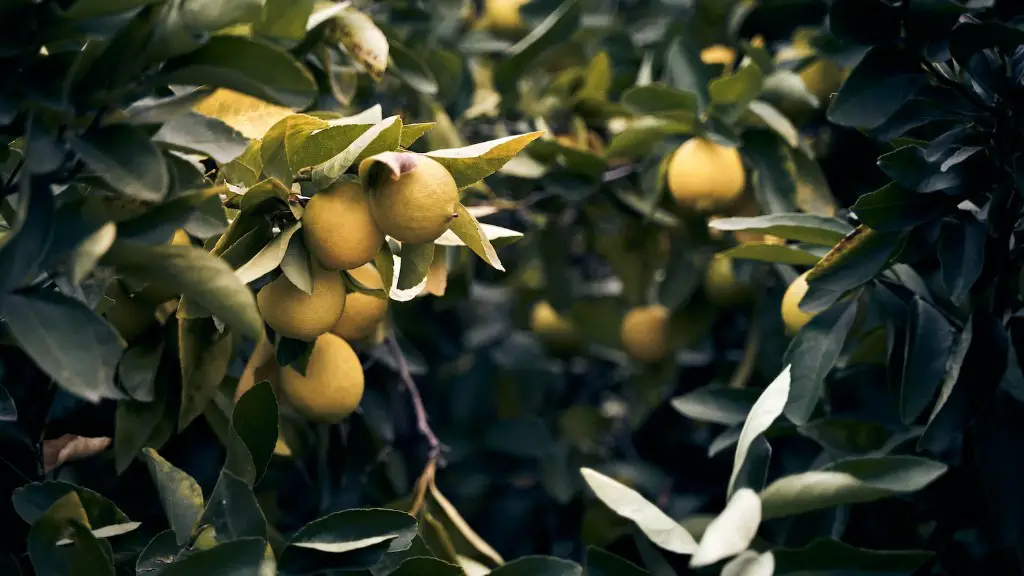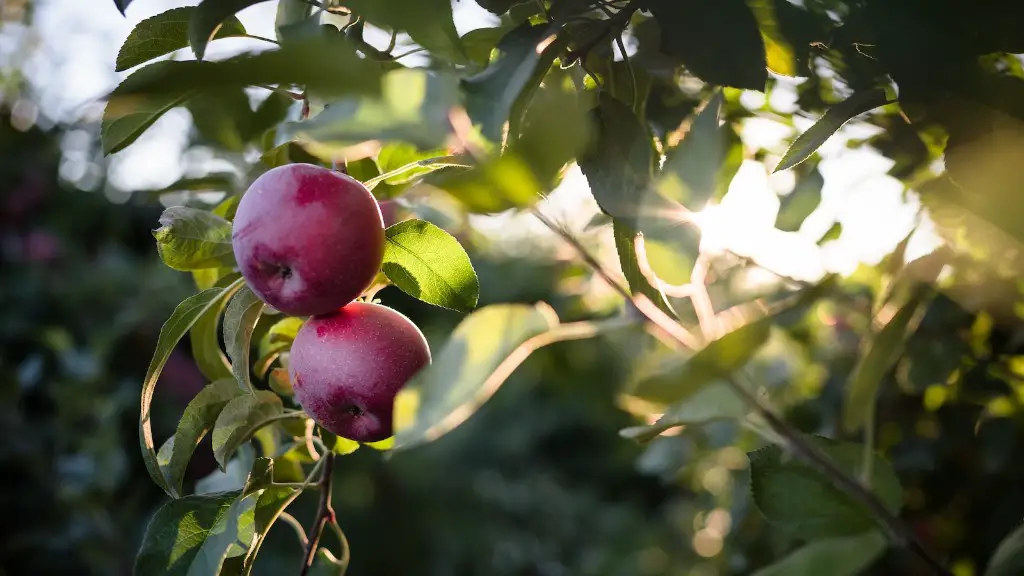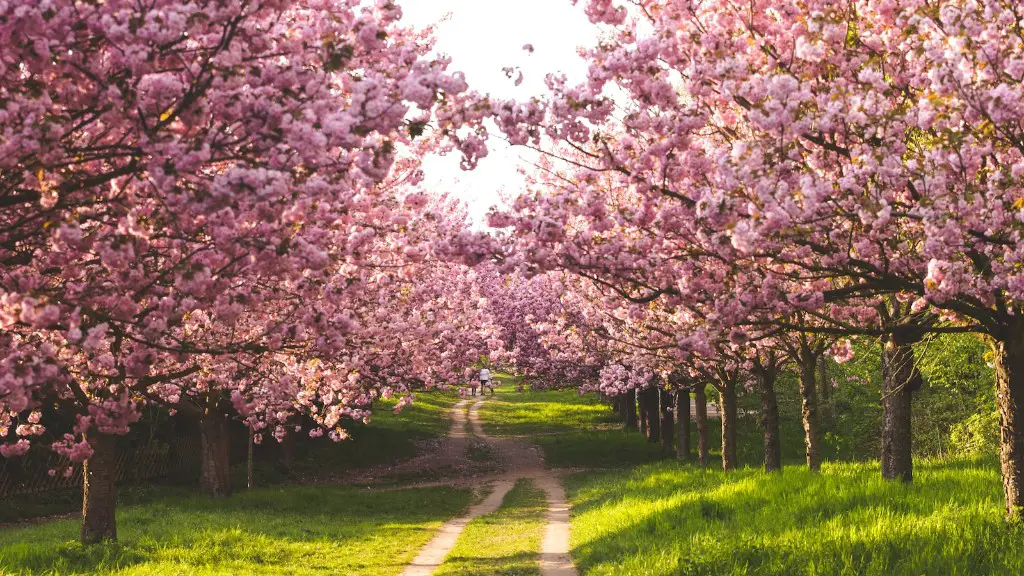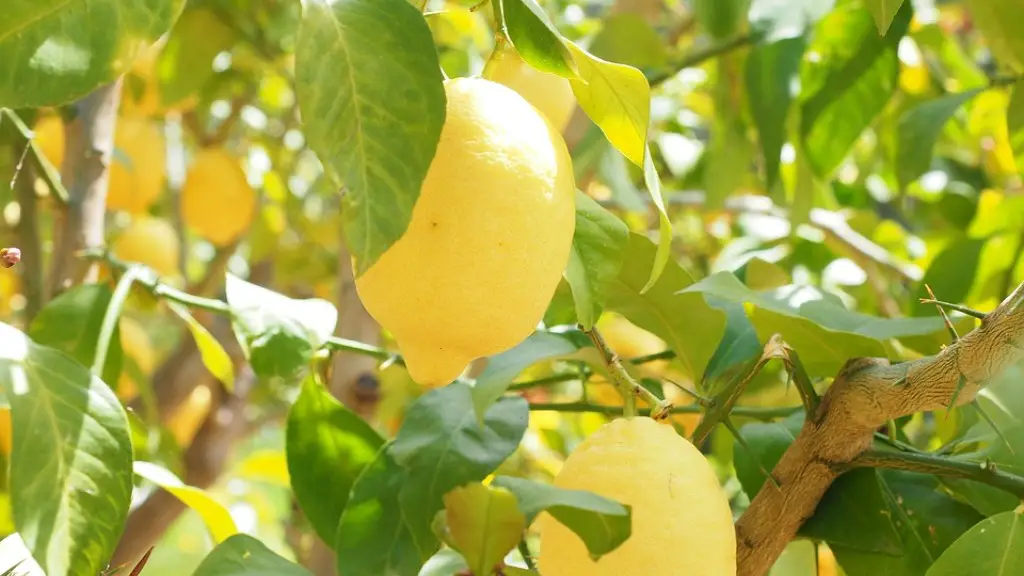Failing to yield a harvest of lemons could be extremely perplexing for anyone hoping to cultivate a lemon tree. There could be a few different factors behind a lemon tree’s refusal to bear fruit, so it’s important to identify the cause of the problem in order to take necessary corrective action.
The most common issue is inadequate sunlight. Citrus trees need at least 6-8 hours of direct sunlight every day, so if not enough light is reaching the tree, it won’t be able to produce enough carbohydrates to grow lemons. Even if the tree is getting enough sun during the summer, it may not be during winter when the days are shorter.
Inadequate watering can also be the culprit. Lemon trees require regular watering, particularly during the summer when temperatures are highest and the risk of scorched leaves is greater. If the soil is too dry, the leaves could start to curl and yellow, and without enough water the tree may struggle to produce fruit. If the soil retains an excessive amount of water, the roots can become waterlogged and eventually die out due to lack of oxygen.
A lemon tree could also fail to fruit if it is getting too much fertilizer. Over-fertilizing can cause the tree to become overly woody, with a disproportionate amount of foliage compared to small-to-no lemons. Fertilizers should be used judiciously, adding only the recommended amount during alternate months.
Finally, certain diseases may hinder a lemon tree’s ability to blossom. Two common issues are bronzing of the leaves, caused by a zinc deficiency, and Alternaria brown spot which is due to over-watering. Such issues can be identified by the presence of yellow, distorted or discoloured leaves and to rectify it may need to apply the relevant insecticides, fungicides or disease-infected foliage removal.
How To Check the Problem
Once it’s been determined that a lemon tree isn’t producing fruit, it’s necessary to take a more in-depth look at what’s behind the problem. The first step is to assess the amount of sunlight reaching the tree by objectively inspecting the surrounding area regularly and gauging how much light is filtering through. If that’s not enough, artificial lighting could be added.
The soil should also be tested to detect whether it is too wet or dry; a soil analysis can provide the necessary information. It is also important to inspect the tree for signs of insect infestation or disease, as these may affect the tree’s ability to flower. If the tree was recently planted, it may need to wait a few more months before it starts maturing and producing lemons.
Finally, pruning could help too. Pruning involves removing dead branches or shoots, and leaf plucking can help to accelerate photosynthesis, thus helping the tree to grow faster. If fertilizers were used, reducing their application to every 2 months could help if it was found to be the cause of the poor fruit production.
Diagnosis Is Key To A Solution
If the tree isn’t receiving adequate sunlight, treating it with the right amount of exposure could result in improved flower and fruit production. Once the problem is identified, it can be treated according to the stipulated guidelines, such as upping the amount of water or reducing the application of fertilizer.
Contrary to popular belief, the age of a tree isn’t necessarily a factor in whether the tree will bear fruit. In fact, even very young citrus trees can produce fruit if they are attended to with the right degree of care and treated when necessary. If the rootstock was not provided with adequate sunlight, managed watering and fertilized to the correct quantities, the lemon tree may be unable to grow a crop, regardless of its age.
Still, even with a careful eye it can be difficult to spot all of the signs right away, so a tree specialist may be the best resource to consult, especially if a tree is diseased. Alternatively, they may be able to diagnose the problem without needing a further assessment and give advice on how to treat the affected tree.
Amending Imbalance
Once the reason for the tree’s failure to fruit has been identified, steps towards remedying that issue should be taken. For example, if it is an issue of the tree not receiving enough sunlight, a sunnier spot should be found or artificial lighting used to supplement the light the tree already requires. Thoroughly watered soil is essential to the survival of citrus trees, so water should be added if detected dry.
Fertilizers and pesticides can also play a role in deterring a lemon tree’s development, which is why it’s necessary to only use what is recommended by the manufacturer. An added tip is to test the soil to analyze its chemical composition, including the amount of nutrients being added, and this could provide insight into why the tree is struggling to flower and set fruit.
Managing the tree’s ailment is important since a healthy tree can generate a successful harvest of lemons in the future. Whether it’s a case of too little sunlight or too much water, oftentimes the problem presents itself in the form of yellow or discoloured leaves which can be identified through visual inspection.
Managing An Imbalance In Processes
Actively managing oil balances to ensure the ideal environment for a lemon tree is a time consuming and meticulous process, even with the advice of a professional tree specialist. Symptoms such as yellowing leaves and poor fruit development should be attended to swiftly, as those are indicative signs of a tree in need of attention.
Casting one’s eye over the tree regularly is key, as it could alert the person monitoring it to any disease or insect infestations in its burgeoning process. Appropriate insecticides or fungicides could acceptedly be used if problems related to those ailments exist, as well as removing any diseased leaves.
It is also necessary to watch out for roots that could become waterlogged, as well as taking water samples to test their chemical compositions. Applying too much fertilizer can create an overly woody tree with a disproportionate amount of foliage, so it’s important to make sure the tree isn’t receiving more than the recommended dosage.
Taking the necessary steps in response to any of these issues may be difficult, and consulting an experienced tree specialist is always recommended. Doing so could provide insight on how to treat any problems and ultimately lead to a successful harvest of lemons.




